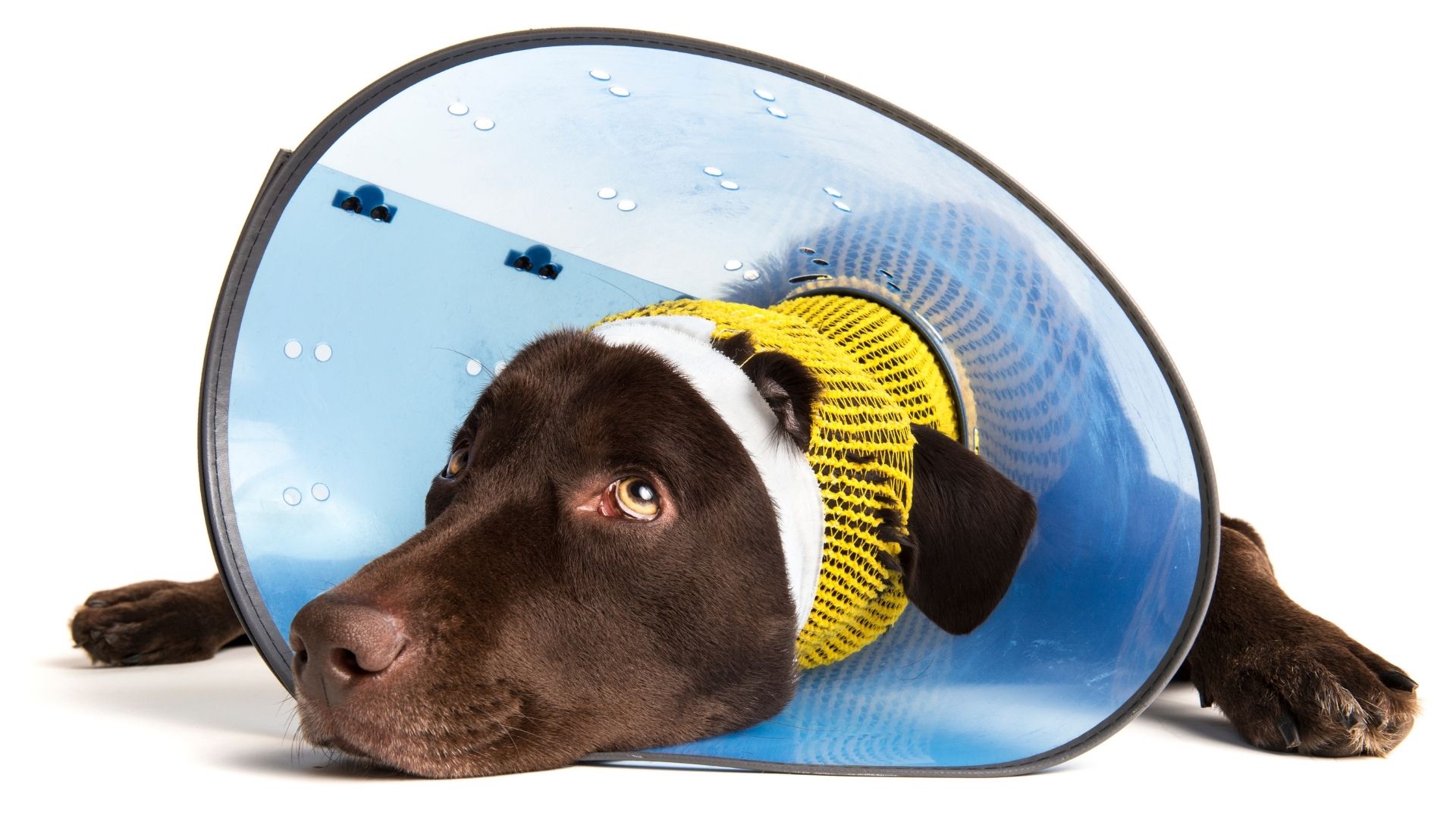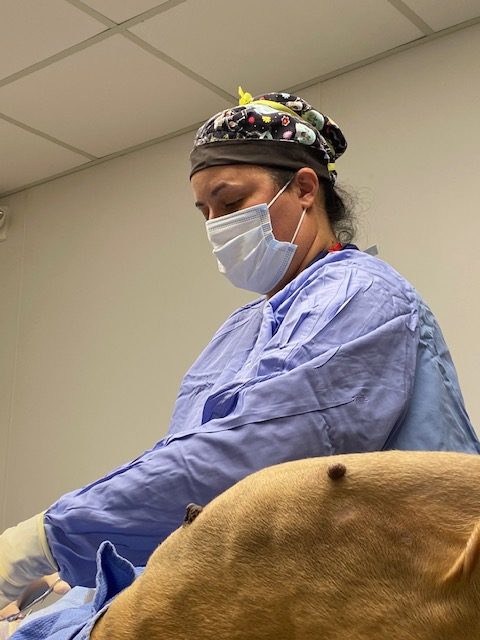Pet Surgery in a Safe and Clean Environment
Making sure our patients remain safe during surgery and other medical procedures is extremely important to us. Our team is skilled in using anesthesia and monitoring patients to ensure their safety and provide the most comfortable experience. For more specific information on our protocols, please see the individual descriptions below or contact us with any questions.
Spays
Spaying your pet has many benefits. The procedure, which prevents female animals from becoming pregnant and reproducing, can help your dog or cat live a longer, healthier life. Spaying will not change your pet’s personality.
By spaying your female pet, you’re protecting her against potentially deadly diseases, including bacterial infections, reproductive tract diseases, and several types of cancer. You also won’t have to worry about her going into heat. This means avoiding the mess that often accompanies female dogs’ heat cycle and the pacing and crying that happens with female cats. In addition, spaying your pet will help control the dog and cat overpopulation problem, keeping more animals out of shelters.
Spaying, which involves removing the ovaries and uterus, is a surgical procedure and does need to be performed with the pet under anesthesia. We follow strict protocols and continually monitor your pet’s vital signs to help ensure her safety.
To set up an appointment to have your pet spayed or to learn more about this procedure, call or visit our clinic. If you are struggling with the decision of whether to spay your pet, please call us so we can discuss your concerns.
Cryosurgery
Cryosurgery is a relatively painless surgical procedure that uses extremely cold temperatures to remove or destroy small growths on the skin. This same procedure is used on people.
If your pet has growths you are concerned about or would like to have removed, please contact us to set up an appointment.
Neuters
Neutering your pet has many benefits. The procedure, which prevents male animals from reproducing, can help your dog or cat live a longer, healthier life. Neutering will not change your pet’s personality.
By neutering your pet, you’re reducing or eliminating his risk for prostate and testicular cancer, as well as sexually transmitted diseases. Neutering will also reduce or eliminate undesirable and embarrassing behavior, including roaming, fighting, humping, and spraying. In addition, neutering your pet will help control the dog and cat overpopulation problem, keeping more animals out of shelters.
Neutering, which involves removing the testicles, is a surgical procedure and does need to be performed with the pet under anesthesia. We follow strict protocols and continually monitor your pet’s vital signs to help ensure his safety.
To set up an appointment to have your pet neutered or to learn more about this procedure, please call or visit our clinic. If you are struggling with the decision of whether to neuter your pet, please call us or stop by so we can discuss your concerns.
Soft Tissue Surgery
We perform many types of soft tissue surgeries at our clinic. Soft tissue surgeries are those that are not associated with bone. These surgeries can provide many benefits to pets.
Probably the most common soft tissue surgery performed on pets is the removal of masses or lumps. Once removed and tested, most of these masses are found to be benign (non-harmful); however, occasionally, they are more serious. Early removal and accurate diagnosis of a lump are necessary to improve your pet’s outcome if the mass is cancerous.
Surgery can also help resolve several problems related to the eyes. Tearing in your pet’s eyes can mean an infection is present or may be a sign that the cornea (outer layer of the eye) has been damaged. Surgery may allow the cornea to heal faster with less scarring, improving your pet’s ability to see. In some pets, the eyelashes may actually damage the cornea. Surgical intervention improves comfort in these pets, reduces the chances of corneal scarring, and enhances the pet’s vision in the long term.
Please contact us if you’d like to discuss how soft tissue surgery might be able to help your pet.


